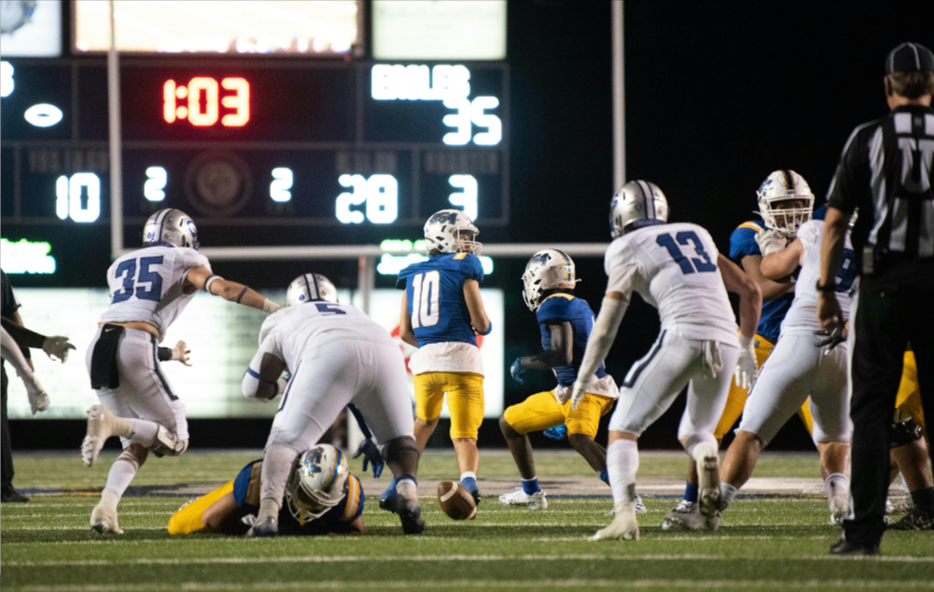Unwritten Rules and Traditions in Football_ What Every Fan Should Know
Unwritten Rules and Traditions in Football: What Every Fan Should Know
Football and soccer have been played for over a century, becoming two of the world’s favorite sports. Over the years, both games have drawn millions of loyal fans and players. With this long history, each sport has developed unique customs and traditions that make it special.
Along with the official rules, football, and soccer have unwritten rules that show fans how to respect the game. These traditions go beyond the scoreboard, helping fans appreciate the spirit of sportsmanship. Knowing these unwritten rules helps fans connect more deeply with the game.
Learning these customs allows fans to understand better what makes these sports meaningful. Let’s explore some essential unwritten rules that bring together fans, players, and communities in football and soccer.
Respect for the Game and Opponents
Respect is vital to football and soccer, shaping how players and fans act. Winning is important, but celebrating too much after a big victory can seem disrespectful to the other team. Both fans and players are expected to recognize the effort and skill of their opponents, no matter who wins.
This respect is shown through actions, not just words. In both sports, teammates or opponents often help each other after a challenging play. These gestures show that both teams want to win and believe in fair play and sportsmanship. This respect keeps the game fun and honorable for everyone involved.
Fan Behavior
Fans create a big part of the game’s atmosphere in soccer and football. In soccer, fans’ chants and songs fill stadiums with energy, showing unity as they rally behind their team. These chants connect fans and make each game feel like a shared experience, creating lasting memories.
In American football, traditions like tailgating play a significant role in bringing fans together. Fans gather to share food and grill before the game and build excitement for the upcoming kickoff. Like soccer fans who track team standings and player stats, football fans follow team updates to stay involved.
For example, fans often track their favorite teams’ odds, like the Indiana Hoosiers, Seattle Sounders, or Penn State Nittany Lions Odds, allowing them to connect with the team’s journey. Tracking team odds and stats makes fans feel more connected, adding to the excitement of each game.
Players’ Code of Conduct
Players in both soccer and football are expected to show respect in their actions on the field. Taunting or excessive showboating after a score is generally seen as disrespectful and can hurt the positive energy of the game. While celebrating is normal, players usually keep it modest to ensure everyone enjoys the game.
This code of conduct also includes showing care for injured players, even if they’re on the opposing team. If an injury happens, players may pause to check on the injured player or to allow medical staff to help. This respect for player well-being reminds everyone that players value each other’s health and safety, even in a competitive setting. Moments like these show fans that good sportsmanship and respect come first.
Respect for Referees
Respect for referees is an unwritten rule that keeps football and soccer orderly and fair. Even though fans and players might not agree with every call, it’s important to let referees manage the game without constant arguments. Disputing every call disrupts the flow, causing delays and detracting from the game itself.
Players and coaches must respond calmly, even when disagreeing with a call. A player who accepts a penalty without arguing respects the rules and sets an excellent example for younger fans. Respect for referees helps the game run smoothly and keeps it fair, making it a better experience for everyone.
Fans also play a role in showing respect for referees. While it’s normal for fans to react to close calls, excessive booing or negative chants can pressure officials unnecessarily. When fans show patience and respect, it sets a positive tone that makes the game more enjoyable and balanced.
Post-Game Traditions
After a game, players come together to show respect, no matter the final score. In American football, players and coaches shake hands, showing that they value each other’s effort and skill. This tradition reminds everyone that, despite competing hard, both teams appreciate teamwork and respect.
In soccer, players often exchange jerseys as a sign of admiration. This gesture goes beyond winning or losing—it’s a way for players to show respect for one another. These simple acts reinforce the idea that, while both sides play to win, there’s a shared love for the game.
Fans play a big part in post-game traditions, too. Many fans stay after the final whistle to cheer for their team, no matter the result. This support shows that being a fan is about more than celebrating victories—loyalty.
Some teams even salute their fans after the game, recognizing their energy and dedication. These moments build a strong sense of community, showing that everyone, on the field or in the stands, adds to the spirit of the game. Post-game traditions keep the game positive and meaningful, creating bonds beyond the final score.
Conclusion
Understanding these unwritten rules and traditions gives fans a richer experience of football and soccer. Knowing these customs teaches respect and brings fans closer to the spirit of the game. The next time you watch a game, remember these traditions—they make football and soccer unique and uniting.











Post Comment